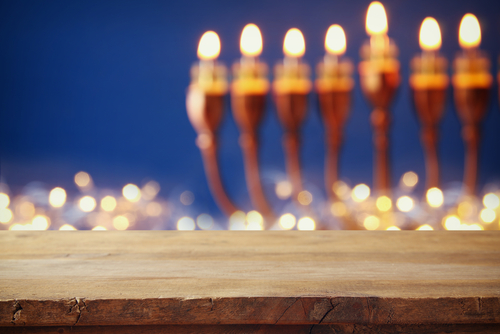Hanukkah, Hebrew for “dedication,” is celebrated for 8 days on the 25th of Kislev on the Hebrew Calendar each year. It often falls in November or December and is commonly known as “The Festival of Lights” as it is celebrated with the lighting of a menorah. During the 2nd century BCE, Greek-Syrian oppressor Antiochus IV Epiphanes outlawed the Jewish religion and massacred thousands of people in Jerusalem. Led by the Jewish priest Mattathias and his five sons, a large-scale rebellion broke out against Antiochus and the Seleucid monarchy. When Matthathias died in 166 B.C., his son Judah successfully drove the Syrians out of Jerusalem. According to the Talmud, one of Judaism’s most central texts, Judah Maccabee and the other Jews who took part in the rededication of the Second Temple witnessed what they believed to be a miracle. Even though there was only enough untainted olive oil to keep the menorah’s candles burning for a single day, the flames continued flickering for eight nights, leaving them time to find a fresh supply. This wondrous event inspired the Jewish sages to proclaim a yearly eight-day festival.


